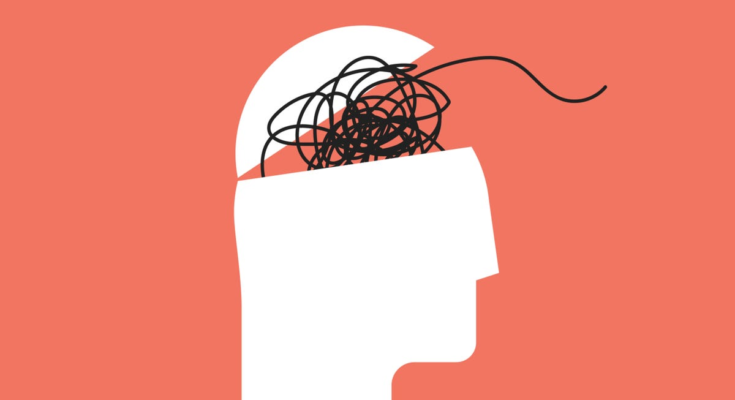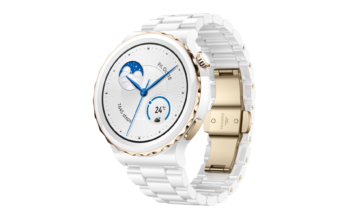
There are a lot of misconceptions about what it looks like to live with attention deficit hyperactivity disorder. The phrase might bring to mind an image of a little boy who can’t sit still, and the prevalent idea is that children eventually outgrow their ADHD symptoms. But in reality, ADHD is a complex disorder, one that often persists into adulthood, with symptoms that extend far beyond an inability to focus or sit still. As a result, many adults who have experienced symptoms of ADHD from an early age never received a diagnosis or treatment.
“The term ADHD is bit of a misnomer,” said Lidia Zylowska, a psychiatrist with the University of Minnesota Medical School. “Lack of focus is just one aspect of having ADHD.”
If you think you may have adult ADHD, it is important to get evaluated sooner rather than later, as lack of treatment can often cause a myriad of personal and professional difficulties. And seek out a healthcare practitioner who specializes in adult ADHD, as many of those misconceptions extend to those within the healthcare field.
With that in mind, here is a general overview of ADHD, as some signs that can indicate you might have an undiagnosed case.
You have trouble making plans and sticking to them
ADHD can be more accurately described as an executive function disorder. Executive function, which is often described as the “management system of the brain,” is what helps us set goals, make priorities, and come up with plans and persist until their completion, even if things get complicated.
G/O Media may get a commission
Executive function is made up of three main components: working memory, cognitive flexibility, and inhibitory control. It is what gives us the ability to pay attention, prioritize, set goals, make and adjust plans based on feedback, as well as complete these plans. This all requires long-term thinking, the ability to adjust to changing factors, and the control to keep going despite obstacles we encounter. People with ADHD tend to struggle with all of these components of executive function.
You’re always looking for something new to do
ADHD is thought to be caused by a deficit in the neuro-transmitters dopamine and norepinephrine. People with ADHD attempt to make up for this deficit by constantly engaging in dopamine-stimulating behaviors, resulting in either physical or mental restlessness.
“Even if you are not hyperactive outwardly through your body, I have yet to meet someone with ADHD who didn’t have some kind of hyperactive brain, who [wasn’t] constantly searching and wanting to learn new things,” said Terry Matlen, a psychotherapist and author of The Queen of Distraction: How Women With ADHD Can Conquer Chaos, Find Focus And Get More Done, who was diagnosed with ADHD as an adult.
There are three subtypes of ADHD: hyperactive-impulsive, inattentive-disorganized, and combined.
People with hyperactive-impulsive type ADHD seek out stimulation within their physical environment; people with the inattentive-disorganized type seek out mental stimulation; while those with combined ADHD seek stimulation via a mixture of the two.
All of these scenarios create issue with focus, as a person with ADHD is either too busy seeking out stimulation or too tired from the effort of curbing their impulses to focus. The other aspect of ADHD is known as hyper-focus, which is when a person becomes highly focused on one thing, to the exclusion of everything else. While that might sound beneficial, the problem with hyper-focus is that it is difficult to control, which can lead to a person forgetting to do other important things.
ADHD is a disorder people are born with, rather than something that comes and goes in the way that anxiety and depression might. “ADHD is, by definition, not an episodic thing. It’s how your brain works,” Zylowska said.
One of the criteria for ADHD is that the signs of it had to have appeared before the age of 12. That said, given the wide range of symptoms as well as the misconceptions about them, even from doctors, many people never receive a diagnosis during childhood.
You’re always disorganized and procrastinating
Most adult responsibilities, such as holding a job, paying bills, taking care of children, and caring for your physical and mental needs, require a high amount of executive function. This means people with ADHD may struggle with organization, multi-tasking, procrastination, and failing to complete tasks, all of which can cause issues both in the workplace and at home.
As a result, adults with ADHD are often either underemployed in relation to their ability, or struggling to perform up to par in a job that fits their abilities. “We see people who are at their dream jobs and they are just drowning,” Matlen said. “They can’t keep up because it’s hard for them to multitask, it’s hard for them to get their projects in on time, they get derailed because the phone rings or emails come in.”
People with ADHD might face relationship issues because they will either forget or struggle to complete tasks such as paying bills, cleaning the house, or picking up their kids on time. “This can cause a lot of tension within a marriage, especially if the partner without ADHD doesn’t know what it is or that their partner has it,” Zylowska said.
You may have addictive behaviors
Adults without a diagnosis will likely have developed certain coping mechanisms, some of which are healthy, many of which are not.
People who aren’t receiving treatment are at a high risk for developing addictive behaviors, a common way of self-medicating. This could manifest in the form of risky, thrill-seeking behaviors such as racing cars or engaging in high-adrenaline sports, issues with substance abuse, as well as high rates of eating disorders such as binge-eating. There’s also a risk of other compulsive behaviors, such as binge-watching TV, playing games for hours on end, or spending an extreme amount of time on social media.
As Matlen points out, people with ADHD may also tend to gravitate toward professions that are highly stimulating. This could be high adrenaline jobs such as firefighting or working in an ER or mentally stimulating jobs that require a lot of learning and thinking.
You may also have anxiety or depression
There’s also a high probability adults with undiagnosed ADHD will develop additional mental health issues such as anxiety and depression, which can further complicate a diagnosis. Sometimes anxiety and depression develop as a result of their ADHD, while sometimes the conditions develop separately.
“It’s helpful to find a specialist who knows about adult ADHD and can help tease out this complexity,” Zylowska said. One hint would be if, after the anxiety and depression is treated, a person still struggles to focus and to complete tasks.
When the ADHD symptoms first started is another factor to consider, as is a family history of ADHD, as it is highly heritable. There are even times when one sibling will get diagnosed during childhood, while a more high-functioning sibling who doesn’t struggle as much won’t get diagnosed until much later in life.
Diagnosis and treatment are important
If any or all of this sounds like it describes you, it’s important to seek out an evaluation sooner rather than later, due to the issues that can stem from a lack of diagnosis and treatment. You’ll also just feel better, and be able to find ways to begin working through your struggles, once you have a clearer path in front of you.
Finally, given the confusion about what ADHD looks like in adults, it’s important to find a specialist experienced in evaluating adult patients. “If somebody is feeling like ‘I’ve read about ADHD and it fits me,’ [the important thing] is to be empowered to advocate for yourself,” Zylowska said.



